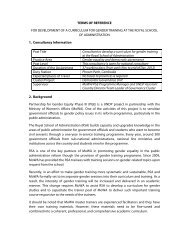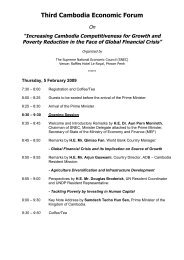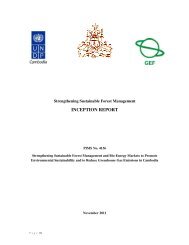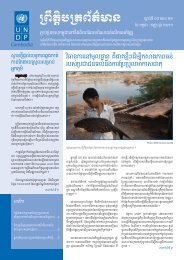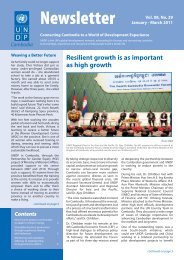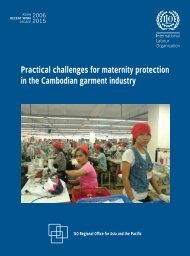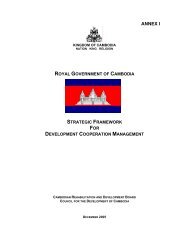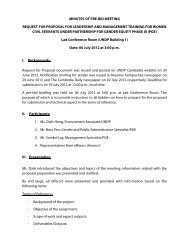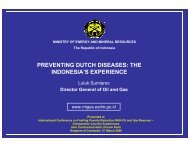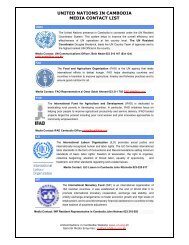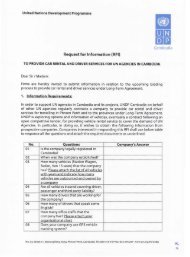Talking about domestic violence: A handbook for ... - Engagingmen.net
Talking about domestic violence: A handbook for ... - Engagingmen.net
Talking about domestic violence: A handbook for ... - Engagingmen.net
Create successful ePaper yourself
Turn your PDF publications into a flip-book with our unique Google optimized e-Paper software.
3.3. Session 3:<br />
The impact of <strong>domestic</strong> <strong>violence</strong><br />
Introduction<br />
The impact of <strong>domestic</strong> <strong>violence</strong> can be severe. Apart from injury and pain, victims can also suffer<br />
economic losses. Domestic <strong>violence</strong> causes serious consequences <strong>for</strong> women’s health and well<br />
being, ranging from anxiety to physical illness. Victims fear <strong>for</strong> their lives and the lives of their family<br />
members. Such fear affects confidence, sense of safety, ability to solve problems or to plan <strong>for</strong><br />
the future.<br />
Domestic <strong>violence</strong> is of public concern and has a negative impact on family members, including<br />
children, victims, others in the household and the perpetrators themselves. It also has a negative<br />
impact on communities and the broader society.<br />
Impact on women: Violence has significant economic, physical and psychological effects on women.<br />
It can cause women to lose the ability to work and earn income. It can destroy women’s confidence<br />
and impair their ability to function. They may also experience feelings of isolation and fear.<br />
Impact on children 14 : Violence has many physical, mental and emotional consequences <strong>for</strong> children. It<br />
can harm their development and hurt the ability to become a healthy adult and useful member of<br />
society. A child’s survival and development is also affected by depression in a mother, and aggression<br />
in a father.<br />
Children exposed to <strong>domestic</strong> <strong>violence</strong> also experience difficulties in sleeping, eating, physical<br />
complaints without a clear medical cause, delays in development (not developing at the normal<br />
rate <strong>for</strong> their age), social withdrawal, problems with school work due to missing days of school and<br />
difficulties or inability to concentrate in school, depression and anxiety. It also causes behavioural<br />
effects such as: aggression, depression, poor per<strong>for</strong>mance at school, cruelty to animals, copying<br />
aggressive behaviour and language, running away, lying to prevent violent behaviour and, worst of<br />
all, using <strong>violence</strong> to solve problems.<br />
Domestic <strong>violence</strong> also has a great impact on how children contribute to society when they<br />
are older. Children who are regularly exposed to <strong>violence</strong> do not learn how to deal with conflict<br />
properly. They also often copy the behaviour of their parents: boys can become the future abusers<br />
of their wives or girlfriends, and girls learn to be submissive and tolerate <strong>violence</strong> from men, as if this<br />
is the natural thing to do. Studies in Cambodia have shown that many street children were subject<br />
to abuse at home and/or were exposed to <strong>domestic</strong> <strong>violence</strong>.<br />
Impact on community and society: Violence against women has a serious impact on the country’s<br />
social and economic situation. In a community in which <strong>violence</strong> occurs, the social atmosphere<br />
becomes abnormal; the health and well being of its members are affected; anxiety, fearfulness<br />
and depression hinder the social harmony. Children miss school and women and men miss work,<br />
thus losing income in several ways. These economic losses have impacts on the development of<br />
the community and society as a whole. Domestic <strong>violence</strong> affects all in the community.<br />
14 Partly adapted from German Technical Cooperation (GTZ) and the Ministry of Women’s Affairs of the Royal Government of Cambodia (2005), Domestic Violence:<br />
A training manual to raise awareness, Phnom Penh, Cambodia.<br />
<strong>Talking</strong> <strong>about</strong> Domestic Violence<br />
33



